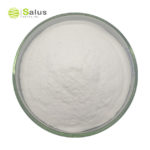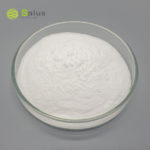
86-29-63699260 / +86-137-5995-3739

Sale@salusnutra.com


Description
FOS are used primarily as a low-calorie, alternative sweetener. People can eat and drink products made with FOS instead of those containing sugar, which spike glucose levels in the blood, and cause weight gain. FOS may also be preferable to artificial sweeteners, some of which have been linked to everything from weight gain, to diabetes.
|
Test Items |
Specifications |
|
Appearance |
White to off white powder |
|
Appearance of solution |
Clear and colorless |
|
pH value of solution |
3~4 |
|
Purity (HPLC) |
Not less than 98.0% |
|
Chlorides |
Not more than 200 ppm |
|
Sulfates |
Not more than 300 ppm |
|
Iron |
Not more than 20 ppm |
|
Arsenic |
Not more than 1 ppm |
|
Heavy metals |
Not more than 10 ppm |
|
Residual solvents ( Ethanol) |
Not more than 0.5% |
|
Loss on drying |
Not more than 0.5% |
|
Bulk density |
Not less than 0. 15g/ml |
|
Tapped density |
Not less than 0 .3g/ml |
|
Aerobic bacterial count |
Maximum 3×104 CFU/g |
|
Coliform bacteria |
Maximum 0.92 MPN/g |
|
Molds and yeasts |
Maximum 50 CFU/g |
|
Staphylococcus aureus |
Maximum 0/25 g |
|
Assay |
98.0% to 100.0% |
FOS can be found in many foods. The highest concentrations are found in:
blue agave
chicory root
garlic
onion
Jerusalem artichokes
Blue agave is available as a nectar you can dilute in water and drink. You can also use blue agave full strength as a syrup. Chicory root is commonly used as a noncaffeinated substitute beverage for coffee.
FOS are also available in powder form as supplements. They are also an added ingredient in prebiotic supplements in pill or capsule form.
FOS is typically listed on food labels as part of dietary fiber, under the total carbohydrates number. It is an ingredient in some brands of yogurt, nutrition bars, diet sodas, and other products, such as dog and cat food.
FOS may have health benefits that provide value apart from their ability to sweeten food.
They’re prebiotic
Because they are not digestible, FOS travels intact through the small intestine to the colon (large intestine), where they support the growth of healthy bacteria in the digestive tract.
May protect against unhealthy bacteria
As reported in Digestive and Liver Disease, FOS helps suppress Clostridium perfringens, a toxic bacteria associated with food poisoning. One animal study reported in The Journal of Nutrition indicated that FOS may also provide some protection against salmonella, another food-borne illness.
May decrease cholesterol levels
An overviewTrusted Source of animal studies indicated that FOS are able to reduce both weight and cholesterol levels in rats and dogs, and that these findings may also be relevant for humans.
Noncarcinogenic
According to a reviewTrusted Source published in Veterinary and Human Toxicology, FOS are not linked to cancer, and are not toxic to humans or animals.
Good source of fiber
FOS are a good source of soluble, dietary fiber. According to a studyTrusted Source reported in the journal Nutrients, FOS have been shown to reduce, or eliminate constipation.

Send Message +
© 2021 www.salusnutra.com All Rights Reserve